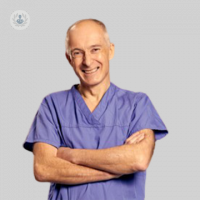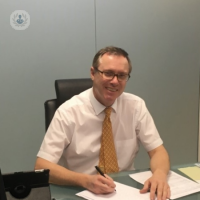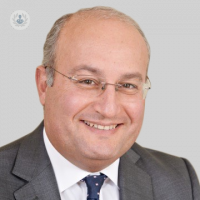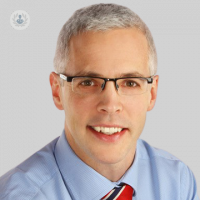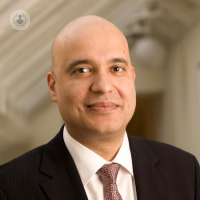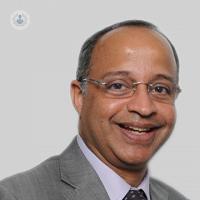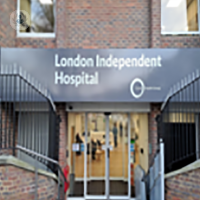What are voice disorders?
Voice disorders are medical conditions which affect the sounds that depend on the larynx (vocal cords), the pitch, volume, tone and other qualities of the voice. Voice disorders, therefore, affect speech production.
Your vocal cords are made of muscle, mucous membranes, and cartilage. Vocal cords are located at the top of your windpipe (trachea) and below your tongue. If they become inflamed, develop growths or become paralyzed they can’t work properly and this could mean you might develop a voice disorder.
The origin of such changes can be organic, physiological, psychological or environmental. There are also two types of disorders: dysphonia and aphonia.
Aphonia is the total loss of voice, whether temporary or chronic and can be caused by overuse of the vocal cords, a respiratory disease, intake of toxic or irritating products, excessive cold or nervous causes. Treatment may include resting the voice, medication, voice therapy or, in severe cases, surgery.
Dysphonia is a disorder of voice intensity due to an injury in the organs or poor use of the voice (functional). The most common causes of this condition are overly straining your voice (voice hyperfunction), gastroesophageal reflux, smoking, infections such as laryngitis or tuberculosis, neurological disorders of the larynx, tumours, and trauma, among others. The treatment involves learning relaxation techniques and breathing, exercising the shoulder, neck and face muscles, and speech therapy.
If you feel you have signs and symptoms of a voice disorder, it is advised to speak with an Otolaryngologist who will be able to diagnose and treat you.

What are some risk factors that can contribute to a voice disorder?
- Ageing
- Alcohol consumption
- Allergies
- Gastroesophageal reflux disease
- Illnesses such as upper respiratory infections or colds
- Neurological disorders
- Trauma at the front of the neck or from neck surgery
- Screaming
- Stress
- Smoking
- Throat dehydration
- Thyroid problems
- Voice overuse or misuse
What are the signs that you may have a voice disorder?
- Your voice has become hoarse or raspy
- You've lost the ability to hit some high notes when singing
- Your voice sounds deeper than usual
- Your throat often feels achy, raw, or strained
- It's become an effort to talk
How can voice disorders be treated?
Treatment for voice disorders varies depending on the cause. Most voice problems can be successfully treated when diagnosed early.
Treatment will depend on the factors causing your voice disorder, however, they can include medication, voice therapy, injections or even surgery.
11-13-2012 07-26-2023
Voice disorders
Professor Martin Anthony Birchall - Otolaryngology / ENT
Created on: 11-13-2012
Updated on: 07-26-2023
Edited by: Kate Forristal
What are voice disorders?
Voice disorders are medical conditions which affect the sounds that depend on the larynx (vocal cords), the pitch, volume, tone and other qualities of the voice. Voice disorders, therefore, affect speech production.
Your vocal cords are made of muscle, mucous membranes, and cartilage. Vocal cords are located at the top of your windpipe (trachea) and below your tongue. If they become inflamed, develop growths or become paralyzed they can’t work properly and this could mean you might develop a voice disorder.
The origin of such changes can be organic, physiological, psychological or environmental. There are also two types of disorders: dysphonia and aphonia.
Aphonia is the total loss of voice, whether temporary or chronic and can be caused by overuse of the vocal cords, a respiratory disease, intake of toxic or irritating products, excessive cold or nervous causes. Treatment may include resting the voice, medication, voice therapy or, in severe cases, surgery.
Dysphonia is a disorder of voice intensity due to an injury in the organs or poor use of the voice (functional). The most common causes of this condition are overly straining your voice (voice hyperfunction), gastroesophageal reflux, smoking, infections such as laryngitis or tuberculosis, neurological disorders of the larynx, tumours, and trauma, among others. The treatment involves learning relaxation techniques and breathing, exercising the shoulder, neck and face muscles, and speech therapy.
If you feel you have signs and symptoms of a voice disorder, it is advised to speak with an Otolaryngologist who will be able to diagnose and treat you.

What are some risk factors that can contribute to a voice disorder?
- Ageing
- Alcohol consumption
- Allergies
- Gastroesophageal reflux disease
- Illnesses such as upper respiratory infections or colds
- Neurological disorders
- Trauma at the front of the neck or from neck surgery
- Screaming
- Stress
- Smoking
- Throat dehydration
- Thyroid problems
- Voice overuse or misuse
What are the signs that you may have a voice disorder?
- Your voice has become hoarse or raspy
- You've lost the ability to hit some high notes when singing
- Your voice sounds deeper than usual
- Your throat often feels achy, raw, or strained
- It's become an effort to talk
How can voice disorders be treated?
Treatment for voice disorders varies depending on the cause. Most voice problems can be successfully treated when diagnosed early.
Treatment will depend on the factors causing your voice disorder, however, they can include medication, voice therapy, injections or even surgery.


Voice changes after thyroid surgery: Does thyroid hoarseness go away?
By Mr Radu Mihai
2024-11-21
After thyroid surgery, your voice could change for several reasons. In some cases, voice changes are temporary and in other cases, they are permanent. Does thyroid hoarseness go away? Mr Radu Mihai provides you with an in-depth guide on the potential voice changes you may experience, what can cause them and much more. See more


Voice disorders: Exploring causes and treatments
By Mr Michael Kuo
2024-11-20
Voice disorders can have a significant impact on daily life and interpersonal communication. From hoarseness and vocal fatigue to complete loss of voice, voice disorders encompass a wide range of conditions that affect people of all ages. Here, Mr Michael Kuo, renowned consultant ENT surgeon, provides an expert insight into the world of voice disorders, exploring their causes, diagnosis, and treatment options. See more


Of time and voice: why ageing makes you sound different
By Professor Martin Anthony Birchall
2024-11-20
Our voice is a massive part of our identity. However, like the rest of our bodies, it is not invulnerable to the effects of ageing. Leading otolaryngologist Professor Martin Birchall provides his expert insight into how the voice changes with age and how we can help to maintain our voices. See more
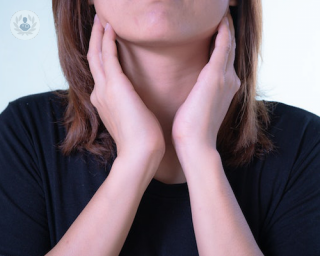

Tonsillitis: An expert guide
By Mr Vikram Dhar
2024-11-19
Revered consultant ENT and head and neck surgeon Mr Vikram Dhar sheds light on the symptoms of tonsillitis and how the condition is treated, including when surgical intervention is indicated. See more
Experts in Voice disorders
-
Mr Nicholas Eynon-Lewis
Otolaryngology / ENTExpert in:
- Blocked nose
- Septorhinoplasty
- Tinnitus
- Sinusitis
- Voice disorders
- Vertigo
-
Mr Anthony Aymat
Otolaryngology / ENTExpert in:
- Cholesteatoma
- Ear infection
- Tinnitus
- Vertigo
- Voice disorders
- Hearing loss
-
Mr Nicholas Gibbins
Otolaryngology / ENTExpert in:
- Thyroid gland surgery
- Phonosurgery
- Endoscopic sinus surgery
- Dysphonia
- Dysphagia
- Voice disorders
-
Professor Guri Sandhu
Otolaryngology / ENTExpert in:
- Voice disorders
- Tracheostomy
- Dysphagia
- Paediatric ENT
- Sleep apnoea
- Hoarseness
-
Mr Abhijeet Parikh
Otolaryngology / ENTExpert in:
- Hearing loss
- Otosclerosis
- Cholesteatoma
- Rhinitis
- Nasal polyps
- Voice disorders
- See all

Spire Little Aston Hospital
Spire Little Aston Hospital
Little Aston Hall Drive, Sutton Coldfield, B74 3UP
No existe teléfono en el centro.
By using the telephone number provided by TOP DOCTORS, you automatically agree to let us use your phone number for statistical and commercial purposes. For further information, read our Privacy Policy
Top Doctors

The London Independent Hospital - part of Circle Health Group
The London Independent Hospital - part of Circle Health Group
1 Beaumont Square, Stepney Green
No existe teléfono en el centro.
By using the telephone number provided by TOP DOCTORS, you automatically agree to let us use your phone number for statistical and commercial purposes. For further information, read our Privacy Policy
Top Doctors

Consult-ENT
Consult-ENT
BMI Chaucer Hospital, Nackington Rd, Canterbury, CT4 7AR
No existe teléfono en el centro.
By using the telephone number provided by TOP DOCTORS, you automatically agree to let us use your phone number for statistical and commercial purposes. For further information, read our Privacy Policy
Top Doctors
-
Spire Little Aston Hospital
Little Aston Hall Drive, Sutton Coldfield, B74 3UP, Sutton ColdfieldExpert in:
- Bariatric Surgery
- General Surgery
- Orthopaedic surgery
- Robotic Surgery
- Diagnostic Imaging
- Ophthalmology
-
The London Independent Hospital - part of Circle Health Group
1 Beaumont Square, Stepney Green, East LondonExpert in:
- Cataracts
- Bariatric Surgery
- Maxillofacial Surgery
- Neurological spinal surgery
- Orthopaedic surgery
- Orthopaedic spinal surgery
-
Consult-ENT
BMI Chaucer Hospital, Nackington Rd, Canterbury, CT4 7AR, CanterburyExpert in:
- Voice disorders
- Blocked nose
- Ear infection
- Dizziness
- Paediatrics
- Hearing loss
- See all
- Most viewed diseases, medical tests, and treatments
- Hormone therapy
- Migraine
- Autoimmune diseases
- Weight loss injections
- Nipple discharge
- Abdominal pain
- Endovenous laser treatment (EVLA)
- Minimal access surgery (keyhole surgery)
- Head and neck cancer
- Neck lump
